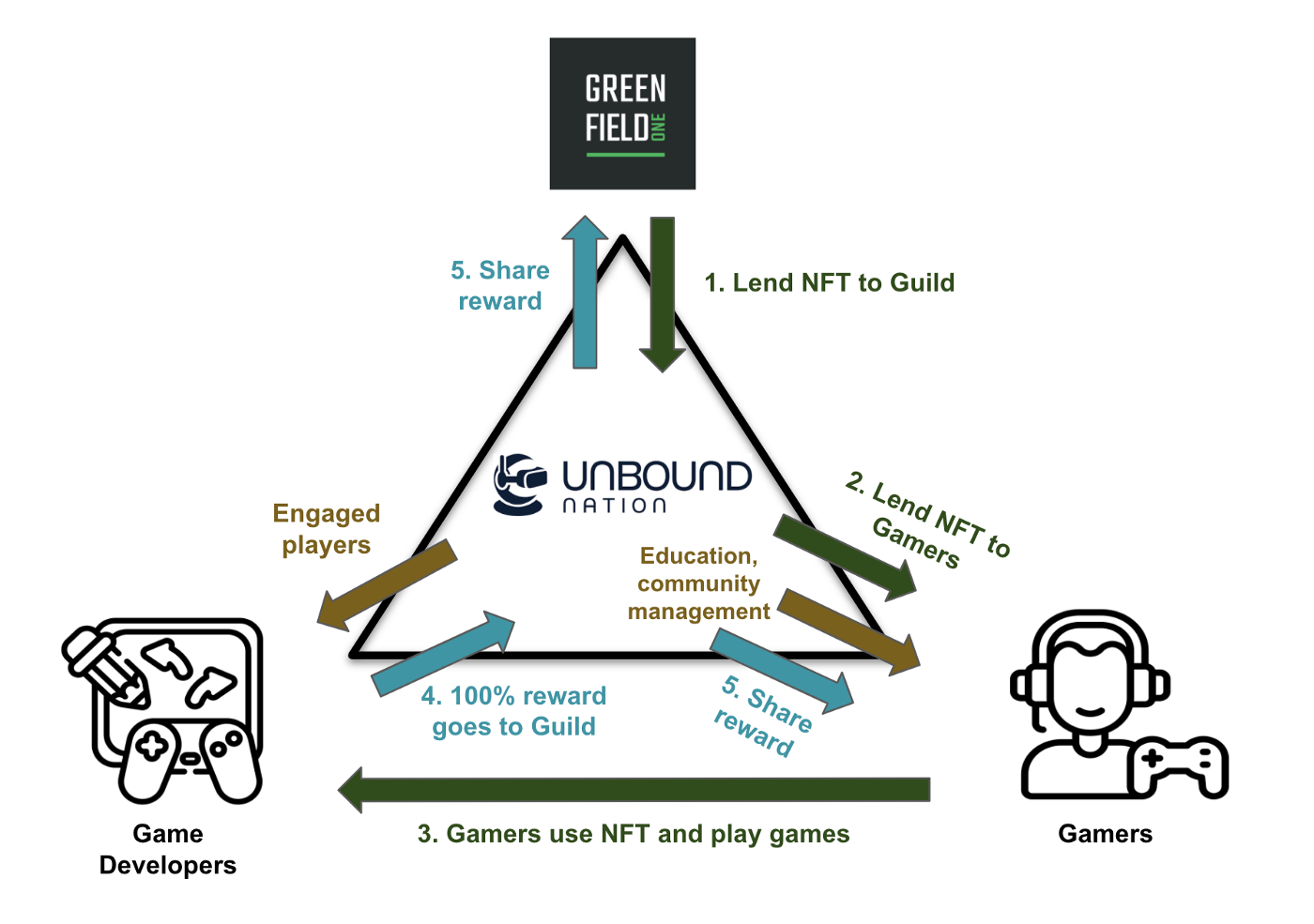Backing Unbound Nation: play-to-earn guild developing an NFT rental B2B product for crypto VCs
by Gleb Dudka, May 11, 2022
We’re excited to be leading Unbound Nation’s latest $3 million seed funding round, where we are joined by Blackpool, Daedalus, BLN Capital, and a few angel investors. Unbound Nation is a fast-growing play-to-earn (p2e) guild that is rethinking the nature of the relationship between game developers, gamers, guilds and venture capital funds.
We were impressed by the Unbound Nation team’s ability to adapt their experience scaling consumer brands and managing teams at major organizations to p2e guild management. They have developed a sophisticated platform to source, manage and educate scholars for the games they support. Unbound Nation has grown significantly in the last couple of months, placing itself at the top 10% in terms of the player performance compared to other major guilds.
Apart from overall execution, as a fund with NFT exposure, we found their approach to building a B2B NFT rental platform targeting NFT funds, seeking to make their idle NFTs productive very exciting. Such product would allow Greenfield One to deploy its NFTs towards p2e games and earn yield for doing so.
Play-to-Earn market and the role of guilds
Most of the blockchain-based games require a buy-in (monetary investment) in form of an NFT in order to play the game (e.g. Axie Infinity) or to be able to earn while playing. This creates a mismatch between the well-off gamers (often the ones in the developed countries) and the gamers in developing countries. Guilds emerged to solve the problem of getting rid of the entry barriers for gamers who have time or passion to play but not necessarily the financial means to buy into playing a game or buy into the top-tier in-game gear to maximize earnings on par with their skill.
We believe the term Play-to-Earn (p2e) to be somewhat of a misnomer as earning is by itself not a sustainable reason to play a game. Most of the games focused solely on earning resemble gamified yield farming protocols more than actual games. We do not expect these games to be long-term sustainable as multiple downward “death spirals” in some p2e games have demonstrated.
We feel the phrase “Play-and-Earn” is more appropriate for more long-term crypto-enabled games, where the game and its core loop are the primary drivers of player activity and retention. Earning, like liquidity mining in DeFi protocols, should serve to bootstrap the user base and be more equivalent to the game/user protocol’s acquisition cost.
Another trend which is starting to emerge is games getting rid of NFT-gating — not requiring players to purchase an NFT in order to play anymore. The financial aspect to NFTs and their in-game utility will remain — likely in a form of boosting the rewards/yields for more high-skilled players. This might decrease the role of the guilds as the gate-keepers to the games for the players who previously couldn’t afford entry-level NFTs. In this circumstance, guilds will most likely concentrate on community management, acquiring and helping high-skilled players by sourcing top-tier NFTs for them or growing into esports organizations.
Play-and-Earn ecosystem
We believe there to be four main stakeholders in the blockchain-enabled gaming space — game developers, gamers, guilds and venture capital funds with NFT exposure. We believe there to be synergies between these stakeholders, where guilds stand in the middle as a match-making actor, balancing and catering to the needs of each stakeholder.

Game developers
- created the game with an in-game economy and a treasury of rewards dedicated to user acquisition and retention
- need engaged and sticky players to bootstrap in-game network effects
Gamers
- have time but might not have money to onboard into the NFT-gated game
- skilled players might want to boost their earnings via rare NFTs which are hard/expensive to acquire
- oftentimes lack smooth in-game onboarding and coaching when moving up the skill bracket and matching in-game gear
Guilds
- provide players with NFTs matching to their skill in exchange for a cut from players’ earnings
- find and attract skilled players while helping new ones to onboard into the game
- build communities and educate the players on the game and help them to improve their skills
- potentially evolve into esports organization where the top-tier and extremely rare NFTs can boost the earnings of the top players
VCs with NFT exposure
- make venture-like bets on NFTs but utilizing these in-game is not their core business
- provide rare NFTs to help guilds incentivise and retain the best players
- earn yields on the previously passive NFT holdings by making them productive
We believe that a partnership between a guild and VC can be very productive when approaching or partnering with game studios. Such collaboration could bootstrap and maintain an active gamer ecosystem and being able to attract top players with the rarest assets, to evolve into esports organisations in the mid- to long-term. We at Greenfield are excited to collaborate with Unbound Nation and some case studies for such collaboration will be announced soon, so stay tuned!
Join the Unbound Nation community on Twitter, Telegram & Discord
Credits to David An and Nicolas Lam for the blog post contributions!